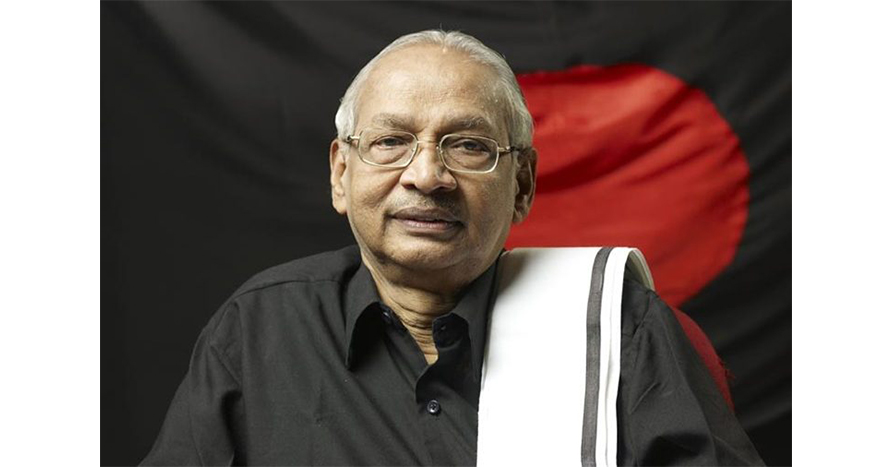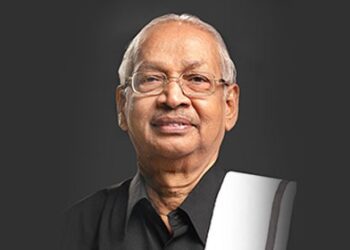Dr. K. Veeramani
President, Dravidar Kazhagam
Historic Judgments of the Supreme Court
Providing reservation for the oppressed sections is the major means to dispense social justice that was denied to them for centuries together. During the 20th century, providing due representation to various communities, by breaking the monopoly of Brahmins in both education and employment in State services, was started. The communal representation was evolved into communal reservation in the post independent period. The basic principle in communal reservation is that ‘denied sections must be given with due share’. Reservation was not for getting educated and employed to earn for the livelihood with comforts alone. Providing reservation is associating the citizens of this country to contribute for the Governance of the State (country) through their due participation in the democratic process. It is not the issue of discriminating the present generation, as per the twist of anti-reservationists. It is the compensating means to eliminate the centuries old discrimination prevailing in the ’holy’ land according to the dictum of religious dogmas. As per the embedded federal spirit and the expressive letters, enunciated in the Indian Constitution, the States are the better judge to decide on the reservation norms, on the share and mode of reservation for the each oppressed section in the process. The Centre has got many areas to govern where the States have no role to play at all. Like that there are certain areas in governance which only the States can exercise in an effective, meaningful manner with the vital element of equity. More than the Centre, the States are empowered to decide on the reservation norms to be adhered in the respective States. The Centre cannot dictate the terms of reservation to the States. But so far, this aspect of States’ right has been ignored and even deliberately ignored by the rulers at the Centre at present as well as in the past. With the result, the eligible candidates hailing from the Backward Classes, including the Scheduled Castes and the Scheduled Tribes could not get admission in their preferred higher educational courses and later deployed in the services of the Centre and the State Governments.
When the apex court was approached to ensure the rights of the States to decide on the mode and norms of providing reservation, it was decided so only in few cases. Recently the Supreme Court has decided in two different cases, emphasising the rights of the States to decide on the reservation norms applicable for their States.
Sub – Categorisation within the Prescribed Reservation Quantum : The broader categories of people provided with reservation are the Scheduled Castes (SCs) the Scheduled Tribes (STs) and the Other Backward Classes (OBCs). The reservation has been in existence, of course not effectively, as per the directions of the Government Orders, there are certain sub groups among these broader categories for whom the reach of reservation was not significant. The unreached groups were unable to cope up with the rest in the homogenous broader category. In Tamil Nadu, in the year 2009, when Kalaignar M. Karunanidhi was the Chief Minister in DMK rule, an exclusive 3 per cent sub-quota for Arunthathiyar community was provided within the overall 18 per cent reservation meant for the Scheduled Castes. Because of this sub categorization of reservation, many Arunthathiyar community candidates got admission in medical, engineering and other higher education courses and employed in various services of Governments in first generation. This sub – categorisation of reservation within the overall quota was challenged. The executive actions of Punjab and some other States favouring sub categorization was also challenged. Many challenges made at High Courts were also appealed to the apex court. On 27th August 2020, the FIVE Judge Bench of Supreme Court headed by Justice Arun Mishra delivered the verdict that the States are righteous authority to decide on the sub categorisation of reservation within the overall quota meant for the broader category of reservation beneficiaries. The legislative actions of the various State Governments including Tamil Nadu were held valid. However the Bench decided to transfer, for the ultimate decision, to a larger bench since a co-ordinate bench had already decided in contrary in the cases challenged on similar lines.
Separate Channel of Entry for Government Doctors in Post Graduate Medical Admission: After contributing 50 per cent of the P.G. Medical seats in the State Medical colleges to All India Quota, the States can decide on the remaining 50 per cent seats. The challenge lies on the manner how the remaining 50 per cent of seats have to be filled in by the respective States.
In 1989, during the rule of Kalaignar M. Karunanidhi as Chief Minister of Tamil Nadu, 50 per cent allocation was given to the candidates, serving in the State Government Services for P.G. Medical admission.
In 1999 during the same DMK rule, weightages were given in P.G. Medical admission to the government doctors who had served in rural, hill areas and hardship centers. The weightage was given for the sole reason that the doctors serving in such places were very much contributing, providing not only medical services to the needy but for the overall health care of the people of the areas. Their services enabled the State of Tamil Nadu to assume a significant place in the Health Care map of the nation.
Providing separate channel of entry for the government doctors were abolished after the introduction of NEET (National Eligibility cum Entrance Test), but awarding the weightage marks for the government doctor-candidates was continued and this sort of discrimination was challenged in the Supreme Court.
On 31st August 2020, the FIVE Judge Bench of the Supreme Court, headed by Justice Arun Mishra delivered the judgment in Tamil Nadu Medical Officers’ Association & ors Vs. Union of India & others, coupled with many related writ petitions and civil appeals.
The verdict upheld the right of the State to allocate separate channel of entry for the aspiring candidates from the government services and the Medical Council of India has nothing to interfere in the process.
The Court directs, “We also expect that the statutory instruments of the respective State Governments providing such separate channel of entry should make a minimum service in rural or remote or difficult areas for a specified period mandatory before a candidate could seek admission through such separate channel and also subsequent to obtain the degree.”
The Court has confirmed the right of the State to formulate a policy in respect of providing separate channel of entry for the aspiring candidates from the State government services for P.G. medical admission.
The above two judgments of the Supreme Court of India (both are Five Judge Benches) confirmed the right of the States in respect of providing sub-categorisation in reservation and separate channel of entry for government doctors and upheld the decisions made by the States during the past in this respect. These historic judgments would provide clarity in respect of the role of States in dispensing social justice in furtherance. Our sustained raising of voice in people’s forum that States have got the ultimate right to decide on reservation norms has been proved right in the judicial forum.






